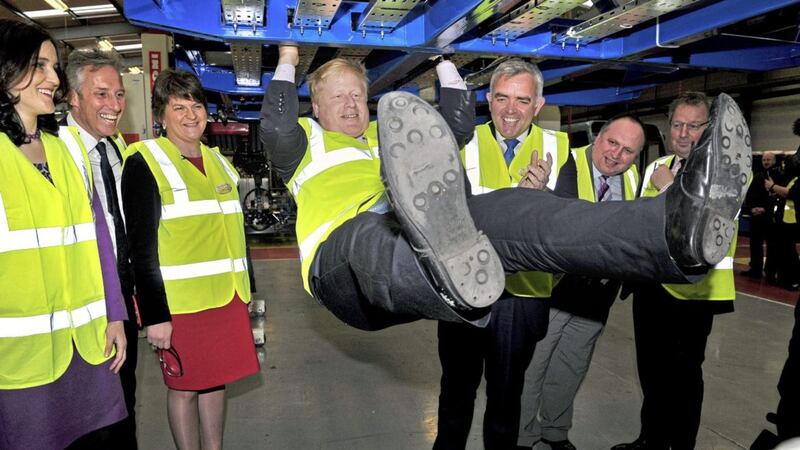Wrightbus backed Brexit and built London’s ‘Boris bus’ so it is tempting to see connections or karma in its collapse. There has been some pretty unpleasant gloating in that direction but Brexit alone did not bring the company down.
Invest NI needs to explain why it gave millions to a private firm that was handing millions over to its own religious charity, including during a loss-making period. Implications of religious bias at the firm misunderstand its culture, however. Building an evangelical church in the car park might have stretched the concept of a neutral workplace to the limit but a finding of religious discrimination was never made against it.
Wrightbus is instead a classic tale of a family business growing beyond a family’s ability to cope - ‘from shirtsleeves to shirtsleeves in three generations’, as warned in the proverb, if not in Proverbs.
It is clearly still a struggle to let go. Reports say bidders pulled out due to the rent demanded for the factory site, which remains under family control.
**
Westminster is back after the Supreme Court voided prorogation, which changes little apart from giving MPs an extra week to shout at each other. However, this has been enough to make the DUP all but admit its Brexit gig is up. Deputy leader Nigel Dodds’ reaction that Brexit may not happen on October 31 is an admission the no-deal option is dead as a negotiating tactic and any rush for a deal by the October deadline will inevitably involve the original withdrawal agreement with a Northern Ireland-only backstop. So the DUP wants an extension, despite Boris Johnson staking his premiership on a “do or die” promise to avoid one. Fortunately, Johnson’s promises are endlessly flexible.
**
Sinn Féin MLA Conor Murphy has advertised for his own press officer, separate to the party press office, using Stormont funds. Murphy was widely tipped to succeed Martin McGuinness until the post of ‘northern leader’ was created for Michelle O’Neill, now regularised as vice president.
Murphy has since acquired the title of chief negotiator, which was McGuinness’s party job description for years.
Meanwhile, MLA John O’Dowd has mounted a challenge for the vice presidency.
Last week, BBC political editor Mark Devenport asked O’Neill if Sinn Féin’s vice president also has to be its Stormont leader.
“They’re separate roles”, she replied, with striking speed.
You do not need to be a Kremlinologist to see where this is heading. O’Neill will stay as vice president and Murphy will become deputy first minister in waiting - waiting for Jeffrey Donaldson to replace Arlene Foster.
**
Water charging is the dog that has not barked during indirect rule but a plea from Northern Ireland Water this week for £2.5 billion of urgent investment is an unmistakeable growl, with the company calling for a “discussion” on its funding model. During the last collapse of Stormont, from 2002 to 2007, the threat of water charging was a significant factor in Sinn Féin and the DUP reaching a deal. However, if charging now has to be introduced, both parties will want to be as far away from Stormont as possible when it happens.
**
The Committee for the Administration of Justice (CAJ) has referred Translink to the Equality Commission for “facilitating discriminatory passport checks on cross-border buses” by the Gardai Immigration Bureau.
These checks have taken place for decades and clearly involve racial profiling. Complaints are warranted, although the obvious remedy of checking everyone would hardly be to CAJ’s liking.
However, it is absurd to report Translink for cooperating with police in another jurisdiction as the law there requires. Bus drivers can hardly ram through checkpoints, as the Equality Commission is certain to point out. It might be useful if the commission added a few words on the futility of activist grandstanding.
**
More than 700 health professionals, mainly GPs, nurses and midwives, have written to the secretary of state demanding conscientious objection be protected when the ban on abortion is lifted next month.
Conscientious objection is often seen as a natural, universal right. In reality, it was a fudge introduced by the 1967 Abortion Act in Britain. Other countries copied it but have since changed their minds, with Scandinavia banning it altogether and Portugal outlawing it in public healthcare. Even in the United States it is considered problematic. There are no other circumstances where it would be acceptable for public employees to deny a lawful service to the public based on their personal views, often of a religious nature. When consideration is given to how Northern Ireland approaches conscientious objection, ruling it out should be a serious option.









